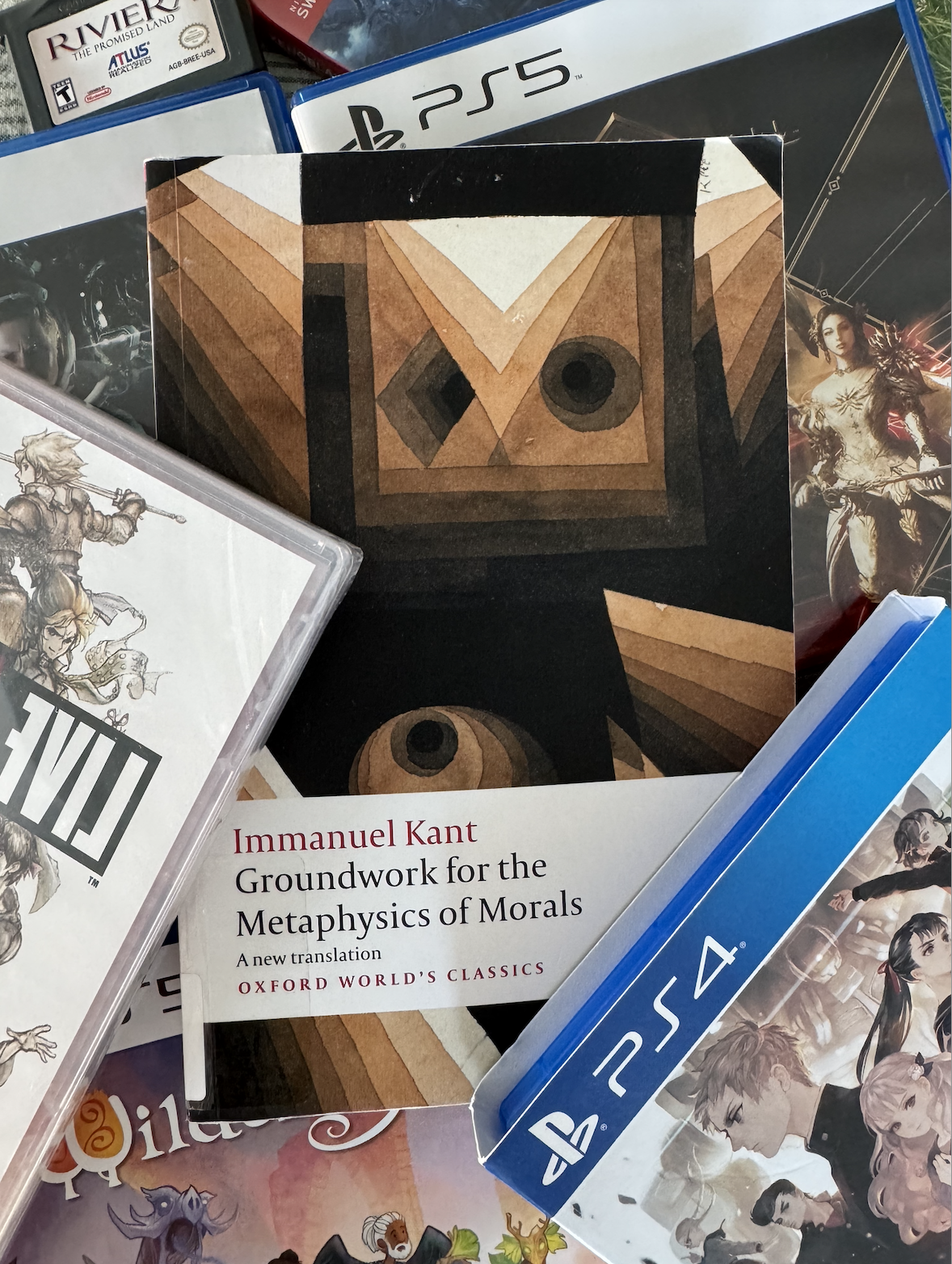Creating quests where the player must “do the right thing” for the little fictional people they meet usually ends up rewarding the the most, or best, stuff. Players are continuously materially rewarded for being “nice,” so they aren’t actually choosing morality as Kant sees it, simply being good little piggies snuffling up treats in the most efficient way possible.
Read MoreI put forth to you the theory that Millennial nostalgia won’t be for Rosebud or Winnie Cooper but web rings and Geocities.
Read MoreTo translate why a game is relevant to a broader theory or concept, you often have to break down more than its theming or do more than simply gloss the plot–the actual way a player interacts within the system has to be dissected. The language around this critique has yet to be fully standardized as there are no bedrock principles that stem full from game design, discussion, or dissection. Critical theory around video games still relies heavily on the concepts and conceits built in other media theories, so having an author that is experienced in film and film studies adds contrast. Powerfully, knowing film theory well means there is never an attempt to stuff the particularly oblique angles of video games into how people already talk about film—video games are given their due, are treated as unique artifacts rather than simply “movies where you can move.” The singular best part about The World is Born is that it never approaches the format of video games ready to wield the tools of another academic discipline.
Read MoreThis is a structural flaw in open world games—linearly constrained quests trigger once you get to a certain location—and it is more apparent after something like Zelda:BotW or even BG3 where the stories feel more integrated into the exploration and less like a little chute you start sliding down once you get to a geofenced “quest zone”. I don’t much feel like I’m roleplaying so much as I’ve crafted a really fun character who I then get to steer through some Call of Duty levels with a random assortment of skills and weapons.
Read MoreI do not know what it would be to read Gamelife without also having lived a life of meaningful games. Childhood is long, we have all shed potential lives that didn’t quite fit. Games fit me. The life I settled on, the one that Gamelife rips into the open air, is Secret of Mana: The way it felt to pull the rusty sword out of the stump; to be exiled from your village; to find the seeds; to revive the Mana tree. It was not the first game I loved, but it was the first game that no one else at school talked about or cared about. The first game that was just mine.
Gamelife puts you back there, if there exists as a place for you to return. Who can say what unsummoned memory might pierce you if Secret of Mana was instead filled with football practices or piano lessons? Game memories flood back not as diversion or waste but as hobby, habit, real experience. Your limited time on earth was spent non-frivolously, seeing and touching and being other than you.
My character was a half-elf wild-magic sorcerer, and the first things he tried in any given scenario were the intellect-based skills of a wizard—arcana; history—even though he stunk at them. I had him functionally want to be a calm, studied wizard, jealous of their supposed composure, and it was fun to have the game seem to play along. He occasionally got to sass a wizard with a labeled “sorcerer only” line like, “I thought wizards were supposed to be smart?” Coming from him, that line had more jealous melancholia than snark.
Read MorePokémon–videogames writ large, but Pokémon firstly and specifically–attach to a particularized aspect of humanity that manages discovery, exploration, and pattern recognition. There exists in a created world an understanding wherein repeated actions receive continuous, replicable, and most importantly comprehensible responses: this, to me, is the foundation of videogames and the font of their appeal. It is unbelievably rewarding at a base level to be able to uncover definitive rules about the world, and it contrasts directly with our impossibly complex reality. Thus, the true magic of videogames is in making seemingly complex systems actionable and navigatable through the employ of a sparse handful of verbs.
Read MoreNow that I had discovered the rumors, I was soon way out in the corner of the map, being taunted by enemies for “relic hunting” when I should be leading the Resistance. Beyond intrigued by what the Palace of the Dead could possibly be, I found a secret door and what seemed to supply an endless possibility of tough, small battles. Oh, what’s that, now there’s a rumor of a pirate’s graveyard somewhere out beyond the islands far to the south?
Read MoreThe other huge strength of procedural generation, to me, is that it creates too many possibility spaces for the designers to decide what is best. I do not like spending my time in a video game trying to guess what the designer wants me to do. That can sometimes be inevitable, but it still frustrates me when I start seeing the various gameplay inputs as tiny puzzles with a golden-path narrative outputs.
I am not immune to this; when my own brain starts telling me to look for the optimal route so I’m rewarded with seamless narrative breadcrumbing and cohesively designed narrative, I know I am not treating the emergent story like my story but like a book that I have to tape back together to read.
Read More








